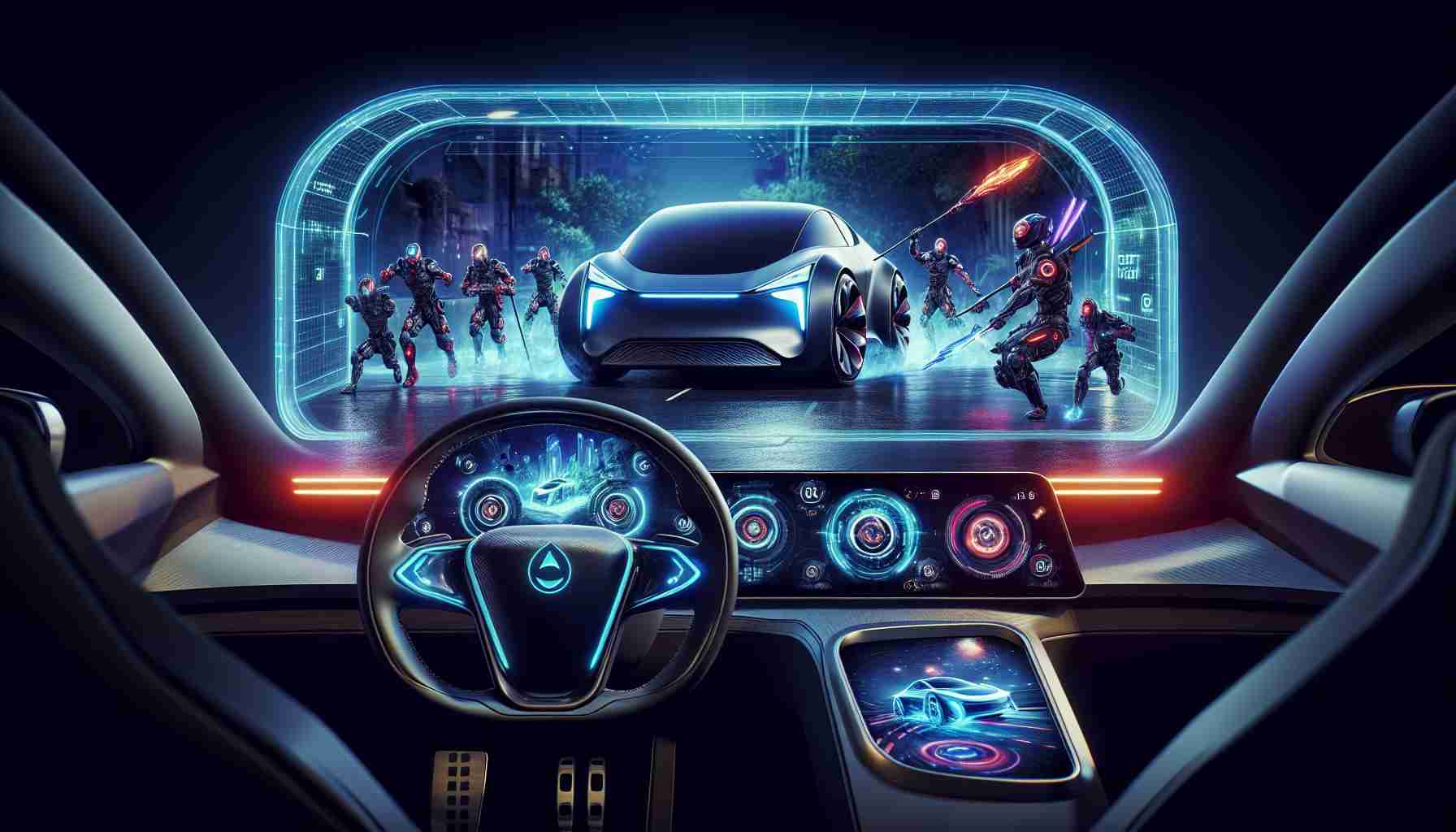As Tesla continues to push boundaries in technology and innovation, the electric car giant is now making waves in the gaming industry. Elon Musk’s visionary company is developing a revolutionary in-car gaming experience that promises to transform how players view entertainment on the move. This ambitious initiative is set to deliver an integration where Tesla’s vehicles double as fully equipped gaming stations, bringing a whole new meaning to the phrase ‘game on the go.’
In a recent update, Tesla announced their partnership with legendary game developers to port mainstream titles to the vehicle’s responsive display. This is not merely a novelty; it’s a technology aimed at redefining passenger entertainment. Leveraging Tesla’s powerful onboard computing hardware, these games are expected to run with console-level performance, opening up a new avenue for developers to innovate in this niche market.
Imagine playing your favorite RPG or exploring vast open-world universes while parked at a charging station; Tesla is gearing up to make this a reality. The prospect of synchronizing in-game progress across platforms—home console, mobile, and now, your car—is particularly enticing. This cross-platform fluidity is foreseen as a trendsetter, advocating a seamless user experience.
As Tesla accelerates towards its gaming goals, avid gamers, potential Tesla owners, and tech enthusiasts await with bated breath to see how this will reshape the future of gaming and in-car leisure. With such developments at hand, the lines between automotive and gaming industries continue to blur, hinting at a future where driving and gaming become seamlessly intertwined adventures.
Tesla’s In-Car Gaming: Revolutionizing Road Trips or Distracting Drivers?
Tesla’s foray into the gaming industry, pairing elite gaming experiences with their signature electric vehicles, introduces intriguing dynamics with potential societal impacts. As this concept develops, several new facets emerge, sparking both curiosity and debate.
The Pros and Cons of Gaming on the Go
While the idea of game-capable cars might seem futuristic and thrilling, it’s crucial to assess the advantages and disadvantages. On the positive side, in-car gaming can drastically improve the passenger experience on long road trips or while waiting at charging stations, offering entertainment that goes beyond traditional car activities. The prospect of locally-stored, AAA gaming titles accessible on the car’s digital interface enchants tech enthusiasts and gamers alike.
However, questions arise about potential distractions for drivers. Although gaming is intended for passengers, the impact on driver focus remains a concern. Advances in autonomous driving technology might mitigate these worries, but full autonomous capabilities are still not universally available, emphasizing the importance of responsible usage and clear safety guidelines.
Community and Economic Impacts
How will this integration affect communities and economics? On one hand, this could increase demand for Telsa vehicles, boosting local economies through increased production and job opportunities. Furthermore, traditional rest stops might innovate to accommodate and cater to these digital travelers.
Conversely, the rising demand for powerful computing capabilities may contribute to semiconductor shortages, already a concern worldwide. This could affect prices and availability not just for Telsa cars, but for consumer electronics broadly.
This intersection of gaming and automotive industries invites a spectrum of possibilities and challenges. As Tesla blazes this trail, it underscores ongoing transformations in how technology shapes our daily experiences, leisure activities, and work commutes.
For further exploration into technological innovations, check out the main Tesla website.
















